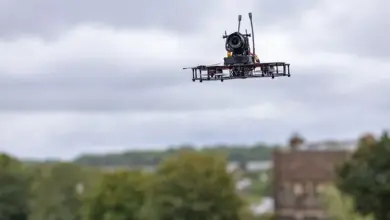
The year 2024 stands at the crossroads of numerous technological innovations, with profound implications for industries, economies, and everyday life. As we move forward, a wave of emerging technologies promises to redefine how we work, interact, and understand the world around us. From advancements in artificial intelligence (AI) to breakthroughs in biotechnology, 2024 is witnessing the acceleration of several key technologies. This article delves into the most prominent emerging technologies of 2024, exploring their potential impacts, challenges, and future applications.
1. Artificial Intelligence and Machine Learning: Smarter, Faster, and More Integrated
Artificial Intelligence (AI) and Machine Learning (ML) continue to dominate discussions of technological advancement in 2024. These technologies have matured significantly, with AI systems becoming increasingly sophisticated, capable of performing tasks that once seemed relegated to human intelligence alone. From self-driving cars to personalized healthcare, AI’s applications are vast.
Key advancements in 2024 include:
- Generative AI: Tools like GPT (Generative Pre-trained Transformer) and DALL-E have become more accessible, enabling users to generate text, images, and even video with minimal input. This has implications for creative industries, customer service, and even scientific research, where AI can help generate new hypotheses.
- AI Integration in Healthcare: AI-driven diagnostics have improved significantly. In 2024, AI can more accurately diagnose diseases such as cancer, heart disease, and neurological disorders by analyzing vast datasets of patient information. Machine learning models are trained on millions of medical records, leading to more accurate predictive modeling and personalized treatment plans.
- AI in Autonomous Vehicles: AI’s role in autonomous driving systems is becoming more pronounced, with fully autonomous cars expected to become more mainstream. AI systems are now better equipped to handle complex driving environments, reducing the risk of accidents and improving overall road safety.
Despite these advancements, challenges remain. Ethical concerns regarding bias in AI systems, data privacy, and the potential for job displacement are at the forefront of discussions. Policymakers and technologists alike are working to balance innovation with ethical considerations.
2. Quantum Computing: The Next Frontier of Computational Power
2024 marks a significant year for quantum computing, a field that promises to revolutionize industries by solving complex problems that traditional computers cannot handle. Quantum computers leverage the principles of quantum mechanics to process information in ways that classical computers never could.
Notable quantum breakthroughs in 2024:
- Increased Qubit Stability: A major challenge in quantum computing has been maintaining qubit coherence, which is necessary for accurate calculations. In 2024, researchers have made significant strides in stabilizing qubits, bringing practical quantum computing closer to reality.
- Quantum Encryption: As quantum computers become more powerful, traditional encryption methods will become obsolete. However, 2024 has seen advances in quantum-safe encryption techniques, which will be essential for securing data in the quantum age.
- Applications in Drug Discovery: One of the most promising applications of quantum computing lies in drug discovery. Quantum computers can simulate molecular interactions at an atomic level, drastically speeding up the process of developing new medications and understanding complex biological processes.
While quantum computing is still in its infancy in terms of mainstream adoption, the groundwork being laid in 2024 could lead to practical quantum systems within the next decade.
3. Biotechnology and Genetic Engineering: Revolutionizing Healthcare and Agriculture
The field of biotechnology is undergoing a transformation in 2024, with breakthroughs in genetic engineering and synthetic biology offering new possibilities in healthcare, agriculture, and environmental sustainability.
Key developments include:
- CRISPR and Gene Editing: CRISPR (Clustered Regularly Interspaced Short Palindromic Repeats) technology has evolved, allowing scientists to make more precise edits to the human genome. In 2024, gene-editing techniques are being used not only to treat genetic disorders but also to enhance resistance to diseases and improve agricultural yields.
- Synthetic Biology: The ability to design and construct new biological systems is advancing rapidly. Synthetic biology is being applied to create biofuels, develop sustainable materials, and even engineer bacteria that can consume plastic waste.
- Personalized Medicine: The integration of biotechnology with AI has led to more advanced forms of personalized medicine. In 2024, it is possible to tailor treatments to a patient’s unique genetic makeup, reducing side effects and improving the efficacy of therapies.
However, with these advancements come ethical concerns. The potential for “designer babies” and the environmental impact of genetically modified organisms (GMOs) are hotly debated topics. The need for clear regulatory frameworks and ethical guidelines is more important than ever.
4. 5G and Beyond: Revolutionizing Connectivity
The rollout of 5G networks was a major milestone in global connectivity, and in 2024, we are already looking ahead to what comes next. 5G has brought unprecedented speed and bandwidth, enabling new applications in smart cities, autonomous vehicles, and the Internet of Things (IoT). However, the next generation of wireless technology—6G—is already on the horizon.
What 6G promises in 2024:
- Ultra-Low Latency: While 5G offers latencies as low as 1 millisecond, 6G aims to reduce this even further, enabling real-time applications that require instant communication. This could have huge implications for remote surgery, virtual reality, and real-time data processing in autonomous systems.
- Expanded IoT Capabilities: As the number of connected devices continues to grow, 6G will provide the necessary infrastructure to support billions of IoT devices, enabling smarter homes, cities, and industries.
- Improved Energy Efficiency: One of the challenges with 5G has been the energy consumption required to power the network. 6G aims to address this by using more energy-efficient technologies, making it more sustainable and cost-effective.
While 6G is still in the research and development phase, the groundwork being laid in 2024 suggests that it could be commercially available by the end of the decade, transforming industries ranging from telecommunications to manufacturing.
5. Augmented Reality (AR) and Virtual Reality (VR): Immersive Experiences Beyond Entertainment
AR and VR technologies are not new, but 2024 has seen them expand far beyond gaming and entertainment. These immersive technologies are finding applications in fields as diverse as education, healthcare, and real estate.
New applications in 2024:
- Healthcare Training: Medical students are now using VR to simulate surgeries and other medical procedures. This allows for hands-on experience in a controlled, risk-free environment, improving the quality of medical training.
- Remote Work and Collaboration: With the rise of remote work, AR and VR tools are being used to create virtual offices where teams can collaborate in real-time, regardless of their physical location. These technologies provide a more immersive experience than traditional video conferencing, making remote work more interactive and engaging.
- Retail and Real Estate: Augmented reality is transforming the retail and real estate industries. Consumers can now use AR to visualize how products will look in their homes before making a purchase, while real estate agents are offering virtual tours of properties using VR.
Despite the excitement surrounding AR and VR, widespread adoption has been slower than expected due to the high cost of equipment and concerns about user comfort. However, with continued investment and development, 2024 may mark a turning point for these technologies.
6. Sustainable Technologies: Addressing Climate Change
Sustainability is a major focus in 2024, with technology playing a key role in addressing climate change. From renewable energy to carbon capture, innovative solutions are being developed to reduce our environmental impact and transition to a more sustainable future.
Key sustainable technologies in 2024:
- Renewable Energy Storage: One of the biggest challenges with renewable energy sources like solar and wind has been storage. In 2024, advancements in battery technology are making it easier to store excess energy and distribute it when needed, improving the reliability of renewable energy.
- Carbon Capture and Sequestration: As the world grapples with reducing carbon emissions, carbon capture technology is becoming more important. 2024 has seen improvements in capturing and storing carbon dioxide from the atmosphere, potentially slowing down the effects of global warming.
- Green Hydrogen: Hydrogen is emerging as a clean energy source, particularly for industries that are difficult to decarbonize, such as heavy transportation and manufacturing. In 2024, green hydrogen—produced using renewable energy—is gaining traction as a sustainable alternative to fossil fuels.




